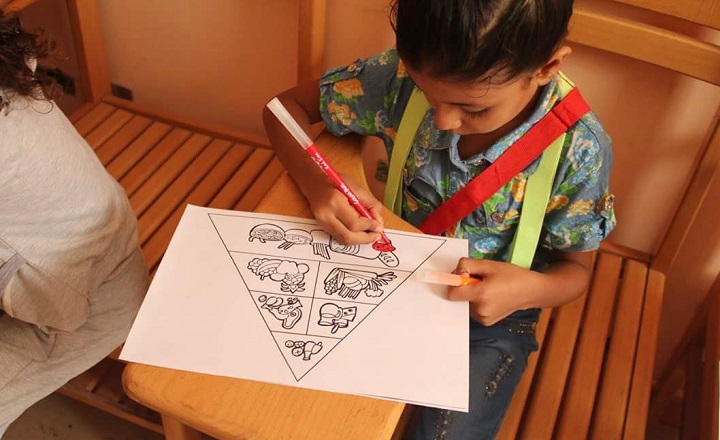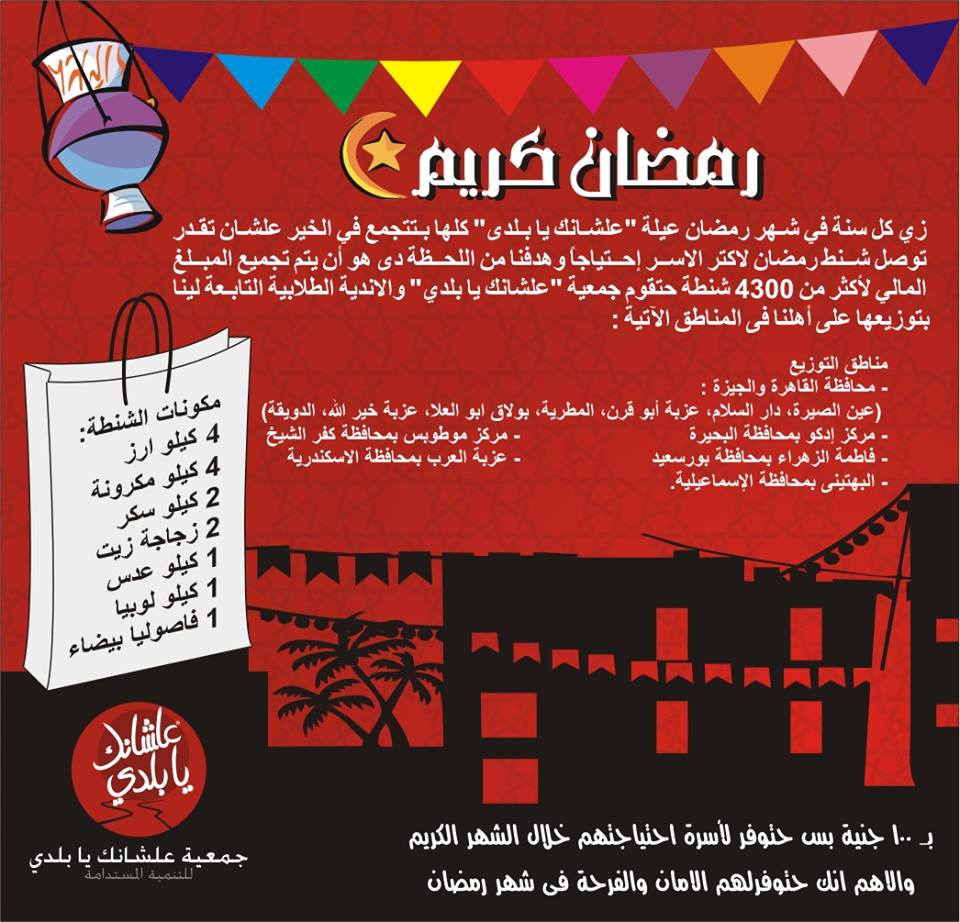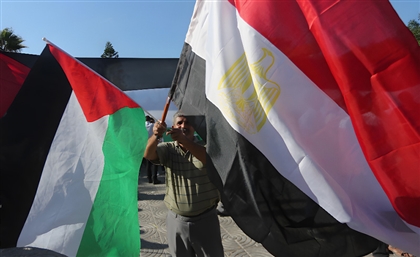Alashanek Ya Baladi Helps Egypt's Underprivileged 'Graduate' From Poverty
We delve into the ground-breaking model of Alashanek Ya Baladi, the NGO empowering the poor to help themselves through self-sustainable communities.

“Give a man a fish and you feed him for a day; teach a man to fish and you feed him for a lifetime,” goes the saying, a motto that describes Alashanek Ya Baladi’s model more accurately than any mission statement can.
Having sprung organically from student clubs that formed across Egyptian universities in the early 2000s, the organisation works through a model that economically empowers the less privileged to find and utilise their individual potential to enhance their living conditions.
“Our model involves economic empowerment, but instead of depending on the organisation’s resources we rely on partnerships, replicated through entities or social ventures in order to increase outreach,” says Mohamed el Kamel, Vice-Chair and Managing Director of the organisation that helps over 50,000 families per year through a colossal range of activities.
Through partnerships with entities such as Dar el Annuar, Wasla, and Etisal, the organisation provides training and counselling to young Egyptians in order to assist them in finding and keeping job opportunities. “We are working on cooperation with factories and integrating counselling and coaching to secure job opportunities. We usually prefer to secure deals with employers first and then invite beneficiaries to participate in our training programmes,” he says as he anticipates an upcoming project for companies in need of medium-skilled labour, such as hospitality and facility management, gardening, or customer service.
Among their activities, the organisation strives to enhance access to social services, to minimise their financial burden, and improve their living conditions. “We also integrate the increase in family income and decrease in spending. That’s why we provide social services, because we need to minimise the burden, and that means increasing awareness to minimise health risks; because their needs are often very simple,” he explains.
In a country where access to public education and health does not often suffice to fulfill the needs of a population whose growth increased by one million in the past six months alone, the NGO relies on informal services provided by volunteers. A society within a society, you could call it. “We rely on volunteers from medical schools who help support families and collect money to get doctors in health caravans to visit a community for free to provide care and medicine,” El Kamel explains.
But here’s the catch: when a family reaches a certain level of income – $240 per family member, per month – they can “graduate” from poverty. “It’s more like mobilising the resources of a community to fulfill a specific gap for a specific amount of time,” he says. “That’s why graduation is very important,” he explains, adding that it usually takes between two to three years for a family to graduate. The organisation is made up of 32 full-time employees and an impressive 2,000 volunteers. “We call them social franchisers because they do student activities that simulate the work of the NGO; they are outreaching individuals and replicating the mother NGO with a smaller scale,” he explains. The volunteers, recruited through its sister organisations at Cairo University, Ain Shams, GUC, AUC, Assiut, Port Said, and the rest of the 11 franchises, are renewed every year, each one of them working for a total of four hours weekly.
The organisation is made up of 32 full-time employees and an impressive 2,000 volunteers. “We call them social franchisers because they do student activities that simulate the work of the NGO; they are outreaching individuals and replicating the mother NGO with a smaller scale,” he explains. The volunteers, recruited through its sister organisations at Cairo University, Ain Shams, GUC, AUC, Assiut, Port Said, and the rest of the 11 franchises, are renewed every year, each one of them working for a total of four hours weekly.
This Ramadan, the organisation is leading a Ramadan bags campaign, aiming to distribute 3,000 Ramadan bags in different areas across Ezbet Abu Qarn (Old Cairo), Al-Mattareya, Ain El Sera (Old Cairo), Boulaq Abuel Ela, Ezbet Khair Allah, Al Dowiqa, Port Said, Ismailia, Al Fayoum, and Alexandria.
“The Ramadan campaign is part of our social services to minimise the social burden for family units. We work across 32 districts with a geographic concentration in Dar el Salam, Mattareya, Boulaq, and Geziret el Dahab,” he says. Even though the organisation doesn’t provide short-term volunteering opportunities, they encourage anyone who wants to collaborate to visit the student clubs across Egyptian universities.
This article is part of the #SceneKheir series, aiming to highlight different charity initiatives throughout the month of Ramadan. For more information and to donate, visit their website and Facebook Page.
























